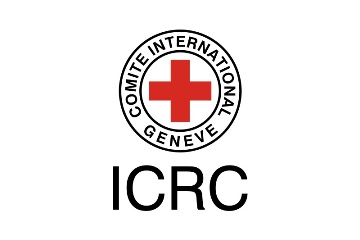ICRC downsizes mission in Sudan following suspension
May 19, 2014 (KHARTOUM) – The International Committee of the Red Cross (ICRC) has expressed regret for Sudan’s suspension of its activities, saying it has led to negative humanitarian implications.
 ICRC also announced it is laying off 195 employees of its local staff while imploring on Khartoum to reverse its decision and allow it resume its work to help the affected population.
ICRC also announced it is laying off 195 employees of its local staff while imploring on Khartoum to reverse its decision and allow it resume its work to help the affected population.
Last February, the Sudanese government ordered the ICRC to halt its activities in the country saying that the aid organisation needs to comply with the humanitarian work guidelines and the voluntary work law in order to continue operating in the country.
The following month, a high level delegation from the ICRC arrived in Khartoum and discussed the issue with officials in the foreign ministry, humanitarian aid commission (HAC), and other government bodies but failed to resolve this situation.
The ICRC said in statement on Monday that its negotiations with the Sudanese government did not yield progress.
The ICRC director of operation in East Africa, Eric Marclay, said they expressed willingness to return to the agreement signed with Sudan in 1984 regarding their presence in the country and humanitarian work.
He underscored that suspension of their activities which continued for 15 weeks had adverse consequences on the affected population in the conflict zones, adding that they are ready to complete negotiations with the government on the basis of 1984 agreement.
“We are increasingly concerned about the humanitarian situation in some parts of the country and are calling on the Sudanese authorities to lift the suspension – be it on a temporary basis while discussions take place – in order that the humanitarian needs of people benefiting from ICRC programmes can be addressed,” said Marclay from the organisation’s Geneva headquarters.
According to the statement, the ICRC expressed readiness to renegotiate the 1984 agreement, saying talks were delayed following weeks of constructive negotiations.
“We remain ready to meet with the authorities to complete the negotiations and resume our activities,” Marclay added. But now that its humanitarian activities have been suspended for 15 weeks, the ICRC has no alternative but to significantly downsize its delegation in Sudan. “We deeply regret having to lay off 195 of our 650 Sudanese staff, but we have no choice,” he added.
Last year, more than 426,000 Sudanese living in areas affected by conflict received food aid from the ICRC, and over 325,000 received farming tools and seed. For nomadic communities in Darfur, whose livestock-based livelihoods have been affected by conflict, it supported vaccination campaigns for over a million animals.
In Darfur, a region where water is scarce, access to clean water was improved for over 708,000 people. More than 72,500 patients visited ICRC-supported health facilities last year and over 1,400 persons injured in armed clashes were treated with medical supplies provided by the ICRC. Throughout Sudan, over 6,100 physically disabled people, many of whom lost their limbs as a result of fighting, received services from ICRC-supported limb-fitting and physiotherapy centres.
Last February, Dafalla al-Qureshi, a spokesman for the ICRC office in Khartoum, said that Sudan’s Humanitarian Aid Commission (HAC) sent them a letter asking them to suspend their activities until they comply with certain conditions.
The ICRC began working in Sudan in 1978 according to its website. The organisation says it is helping people affected by the conflict in Darfur, providing seed, tools, food and water and re-establishing contact between people separated by the fighting.
The ICRC also promotes international humanitarian law and the protection of civilians affected by the conflict.
(ST)
